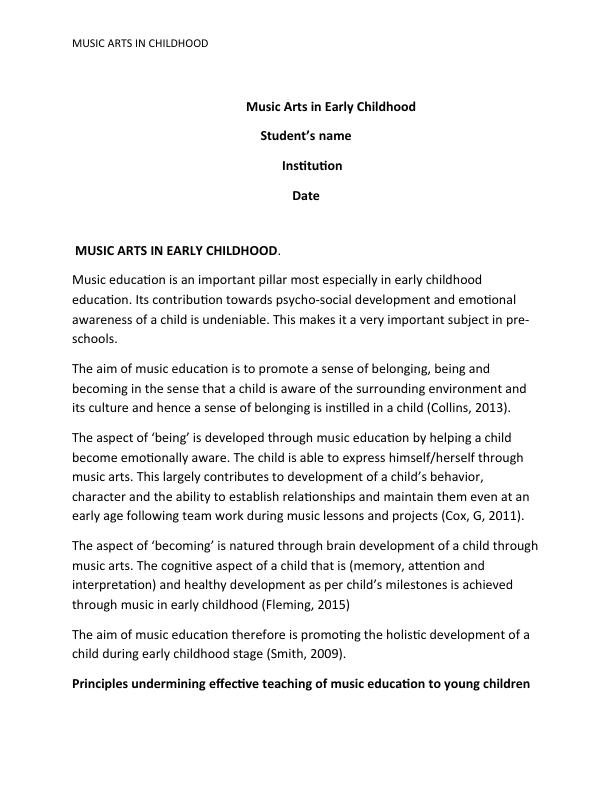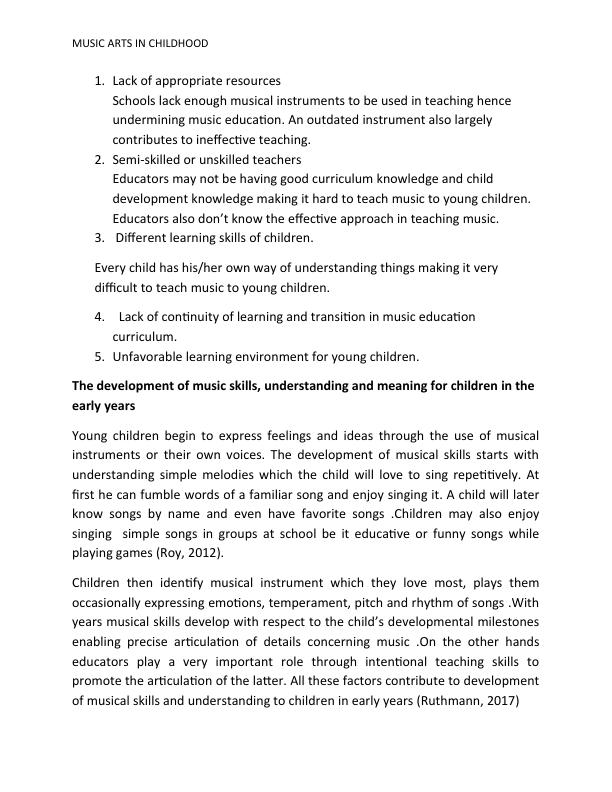Music Arts in Childhood
Write an article on music in the early years for the newsletter of an early childhood professional teaching association, discussing the aims of music education, effective teaching principles, development of music skills, appropriate resources, and the impact on holistic child development.
5 Pages1145 Words87 Views
Added on 2023-01-16
About This Document
Music education is crucial in early childhood as it contributes to psycho-social development and emotional awareness. It promotes a sense of belonging, being, and becoming. Effective teaching of music education faces challenges such as lack of resources and skilled teachers. Music impacts teamwork, confidence, academic performance, social-cultural development, cognitive development, and communication skills.
Music Arts in Childhood
Write an article on music in the early years for the newsletter of an early childhood professional teaching association, discussing the aims of music education, effective teaching principles, development of music skills, appropriate resources, and the impact on holistic child development.
Added on 2023-01-16
ShareRelated Documents
End of preview
Want to access all the pages? Upload your documents or become a member.
ECCDD303A Early Childhood Education and Care
|9
|2905
|197
Music and Movement in Early Childhood Education
|7
|1731
|194
Music Education Approaches: Orff, Kodaly and Composition
|14
|2622
|384
Implementation of Arts in Early Childhood
|9
|2649
|479
The Value of Music, Movement and Drama in Early Childhood Education : Essay
|7
|2097
|120
Personal Philosophy of Early Childhood Education
|5
|815
|77


